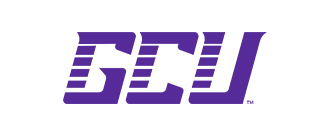Grand Canyon University's Bachelor of Science in Addiction Counseling program is designed to prepare you to work with chemically dependent clients. Read more about Grand Canyon University's Bachelor of Science in Addiction Counseling program here.
<h2 id="section---FrequentlyAskedQuestions">Frequently Asked Questions</h2>
<h3 id="section---WhatKindOfProgramIsIt">What Kind of Program Is It?</h3>
<p>Grand Canyon University's Bachelor of Science in Addiction Counseling program, which is offered online, is designed to teach you about the physical, emotional, social, intellectual, and spiritual impact that psychopathological conditions have on individuals. Major courses give you the opportunity to learn about general and abnormal psychology, health care systems, health policy, professional readiness, counseling service diversity, group counseling, case management, chemical dependency and substance abuse, addiction counseling, and family therapy. This program includes a four-credit practicum where you have the opportunity to develop your counseling skills. Once you complete this program you might be qualified for professional prevention specialist or treatment counselor certification.
</p>
<h3 id="section---WhatAreThePrerequisites">What Are the Prerequisites?</h3>
<p>Prior to enrolling in the Bachelor of Science in Addiction Counseling program at Grand Canyon University you should be interested in helping others overcome their addictions and be a licensed health care professional. You must also have your associate's degree.
</p>
<h3 id="section---WhatAreTheCourseRequirements">What Are the Course Requirements?</h3>
<p>To earn the Bachelor of Science in Addiction Counseling from Grand Canyon University you must complete 120 credits. You take 68 major credits, 34 to 40 general education credits, and 12 to 18 elective credits.
</p>
<p><u>Addiction Counseling Course Requirements</u>
</p>
<p />
<table border="1"><tr><th>Course Code</th><th>Course Name</th></tr>
<tr><td>PSY 102 </td><td> General Psychology</td></tr>
<tr><td>PSY 470 </td><td> Abnormal Psychology</td></tr>
<tr><td>HLT 205 </td><td> Health Care Systems and Transcultural Health Care</td></tr>
<tr><td>HLT 302 </td><td> Spirituality and Christian Values in Health Care and Wellness</td></tr>
<tr><td>HCA 255 </td><td> Health Policy and Economic Analysis</td></tr>
<tr><td>HCA 240 </td><td> Health Care Accounting and Billing</td></tr>
<tr><td>PCN 303 </td><td> Professional Readiness: Legal, Ethical, Personal, and Professional Responsibilities in Counseling</td></tr>
<tr><td>PCN 306 </td><td> Culture and Diversity in Counseling Service and Practice</td></tr>
<tr><td>PCN 308 </td><td> Group Counseling and Community Education</td></tr>
<tr><td>PCN 309 </td><td> Case Management and Interventions Counseling</td></tr>
<tr><td>PCN 315 </td><td> Medical and Physiological Aspects of Chemical Dependence and Substance Abuse for Counselors</td></tr>
<tr><td>PCN 430 </td><td> Chemical Dependency and Substance Abuse: Evaluation, Documentation, and Comprehensive Treatment Planning</td></tr>
<tr><td>PCN 435 </td><td> Chemical Dependency and Substance Abuse: Psychopathology and Psychotherapy Models</td></tr>
<tr><td>PCN 438 </td><td> Addiction Counseling: Psychopathology, Evaluation, Counseling, and Treatment Planning</td></tr>
<tr><td>PCN 440 </td><td> Family Therapy and Education in Addiction, Chemical Dependency, and Substance Abuse Counseling</td></tr>
<tr><td>PCN 445 </td><td> Psychopathology, Co-Occurring Disorders, and Dual Diagnoses in Counseling</td></tr>
<tr><td>PCN 490 </td><td> Practicum</td></tr>
</table><h3 id="section---WhatCouldIDoAfterIGraduate">What Could I Do After I Graduate?</h3>
<h4 id="section---CareerOpportunities">Career Opportunities</h4>
<p>Once you complete Grand Canyon University's Bachelor of Science in Addiction Counseling program you could be able to pursue employment in the counseling field. Your work might include helping individuals with addiction or chemical dependency problems.
</p>
<p>Positions that you could be interested in include:
</p>
<ul><li>Addiction counselor
</li><li>Behavioral disorder counselor
</li><li>Case management aide
</li><li>Client advocate
</li><li>Community outreach worker
</li><li>Human services worker
</li><li>Rehabilitation counselor
</li><li>Substance abuse counselor
</li></ul><h4 id="section---AdvancedDegrees">Advanced Degrees</h4>
<p>You might also be interested in earning a master's degree in counseling or psychology. This could increase your knowledge of helping others and might prepare you for advancement in the counseling field.
</p>
<p>Master's degree options include but are not limited to:
</p>
<ul><li>Master of Arts in Marriage and Family Therapy
</li><li>Master of Arts in Mental Health Counseling
</li><li>Master of Arts in Professional Counseling
</li><li>Master of Science in Marriage, Family, and Child Therapy
</li><li>Master of Arts in Clinical Psychology
</li><li>Master of Arts in Counseling Psychology</li></ul>


.svg)


